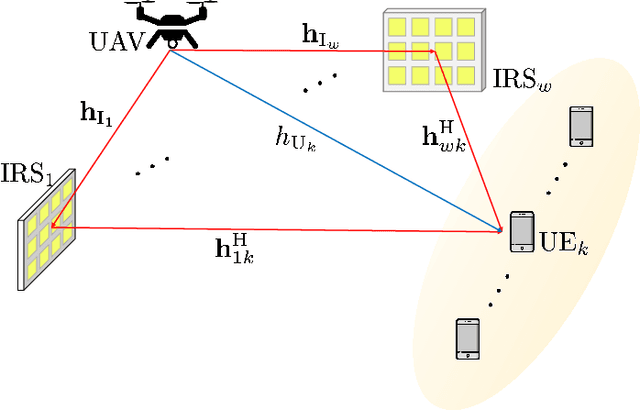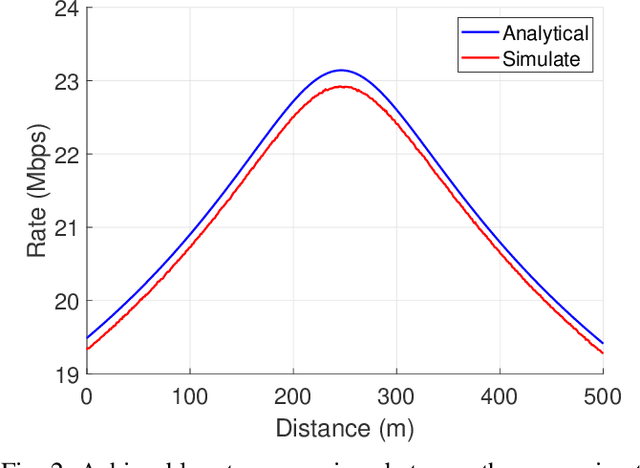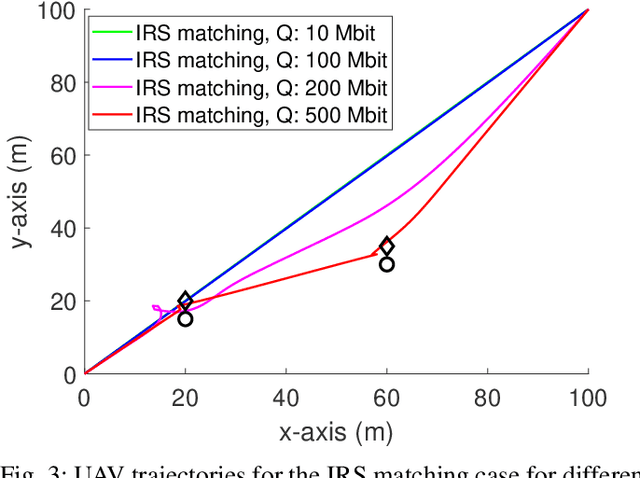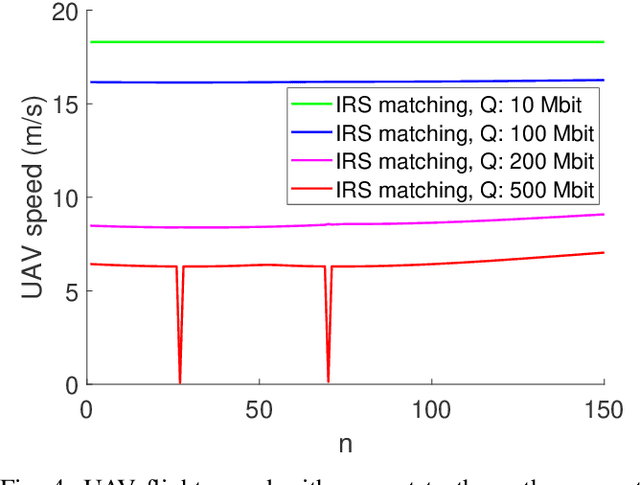Hyesang Cho
Smart Resource Allocation at mmWave/THz Frequencies with Cooperative Rate-Splitting
Mar 19, 2024Abstract:In this paper, we propose algorithms to minimize the energy consumption in millimeter wave/terahertz multi-user downlink communication systems. To ensure coverage in blockage-vulnerable high frequency systems, we consider cooperative rate-splitting (CRS) and transmission over multiple time blocks, where via CRS, multiple users cooperate to assist a blocked user. Moreover, we show that transmission over multiple time blocks provides benefits through smart resource allocation. We first propose a communication framework named improved distinct extraction-based CRS (iDeCRS) that utilizes the benefits of rate-splitting. With our transmission framework, we derive a performance benchmark assuming genie channel state information (CSI), i.e., the channels of the present and future time blocks are known, denoted as GENIE. Using the results from GENIE, we derive a novel efficiency constrained optimization (ECO) algorithm assuming instantaneous CSI. In addition, a simple but effective even data transmission (EDT) algorithm that promotes steady transmission along the time blocks is proposed. Simulation results show that ECO and EDT have satisfactory performances compared to GENIE. The results also show that ECO outperforms EDT when many users are cooperating, and vise versa.
IRS-Aided Energy Efficient UAV Communication
Aug 05, 2021



Abstract:Unmanned aerial vehicles (UAVs) have steadily gained attention to overcome the harsh propagation loss and blockage issue of millimeter-wave communication. However, UAV communication systems suffer from energy consumption, which limits the flying time of UAVs. In this paper, we propose several UAV energy consumption minimization techniques through the aid of multiple intelligent reflecting surfaces (IRSs). In specific, we introduce a tractable model to effectively capture the characteristics of multiple IRSs and multiple user equipments (UEs). Then, we derive a closed form expression for the UE achievable rate, resulting in tractable optimization problems. Accordingly, we effectively solve the optimization problems by adopting the successive convex approximation technique. To compensate for the high complexity of the optimization problems, we propose a low complexity algorithm that has marginal performance loss. In the numerical results, we show that the proposed algorithms can save UAV energy consumption significantly compared to the benchmark with no IRSs, justifying that exploiting the IRSs is indeed favorable to UAV energy consumption minimization.
 Add to Chrome
Add to Chrome Add to Firefox
Add to Firefox Add to Edge
Add to Edge